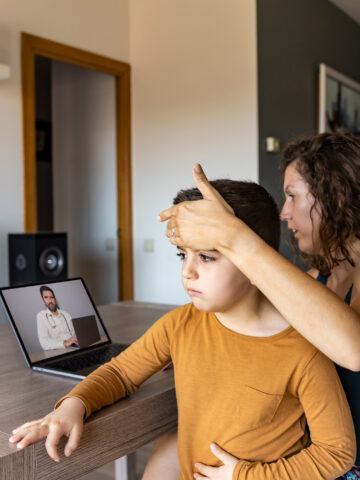By Tuan Tran, infectious disease pharmacist at CHOC Children’s
The Centers for Disease Control’s annual recognition of Antibiotics Week, November 14- 20, is a good opportunity to review basic safety practices of antibiotics and educate yourself so that you can protect yourself and your family. Don’t forget:
- Antibiotics can have reactions and side effects. Harmful effects from antibiotics, such as side effects and allergic reactions, cause 1 in 5 emergency department visits for adverse drug events and lead to 50,000 emergency department visits in children each year
- Antibiotic resistance is growing. An estimated 2 million illnesses and 23,000 deaths occur each year in the U.S. due to antibiotic-resistant infections. Overuse and misuse of antibiotics are the main drivers of resistance.
- Antibiotics can only cure infections caused by bacteria. For example, cough and cold illnesses caused by viruses would not be cured by an antibiotic
Parents are an essential part of a child’s care team. You should feel comfortable asking the following questions to your child’s provider when considering an antibiotic:
- What is the best treatment for my child’s illness? Antibiotics aren’t needed for common illnesses like colds, most sore throats, the flu, and even some ear infections, which are often caused by viruses and do not respond to antibiotics. Sometimes the best treatment is over-the-counter symptom relief.
- Is this the right antibiotic for the type of infection my child has? If an antibiotic is needed, it’s important to use an antibiotic that is designed to fight the bacteria causing your child’s specific illness. Ask your healthcare professional if it’s the most targeted drug to treat the infection while causing the least side effects
- What can I do to help my child feel better? Pain relievers, fever reducers, saline nasal spray or drops, warm compresses, liquids, and rest may be the best things to help your child feel better. Ask your healthcare provider or pharmacist what symptom relief is best for your child.
| Illness | Usual cause: virus | Usual cause: bacteria | Antibiotic needed? |
| Cold/Runny nose | ✔ | NO | |
| Bronchitis/Chest cold* | ✔ | NO | |
| Whopping cough | ✔ | YES | |
| Flu | ✔ | NO | |
| Strep throat | ✔ | YES | |
| Sore throat (except strep) | ✔ | NO | |
| Fluid in the middle ear** | ✔ | NO | |
| Urinary Tract Infection | ✔ | YES |
*In otherwise healthy adults
**Otitis media with effusion
When your doctor prescribes an antibiotic, it’s essential that you take it exactly as prescribed. Follow the directions of your physician and pharmacist, do not skip doses or share the medication, and finish the prescription even if you feel better. Do not save it for later.
There are several things you can do to help prevent infections- starting with receiving an influenza vaccine every year. Aside from getting your flu shot, hand washing is the single most effective way to prevent the spread of pathogens. Scrub for at least 15 seconds when using soap and water. When necessary, cough into a tissue or elbow.
Clinicians at CHOC are committed to optimizing antibiotic use. A multidisciplinary team reviews and monitors antibiotic use to ensure optimal selection, dosing and duration. This reduces adverse events and improves patient outcomes, and slows an emergence of resistance.





